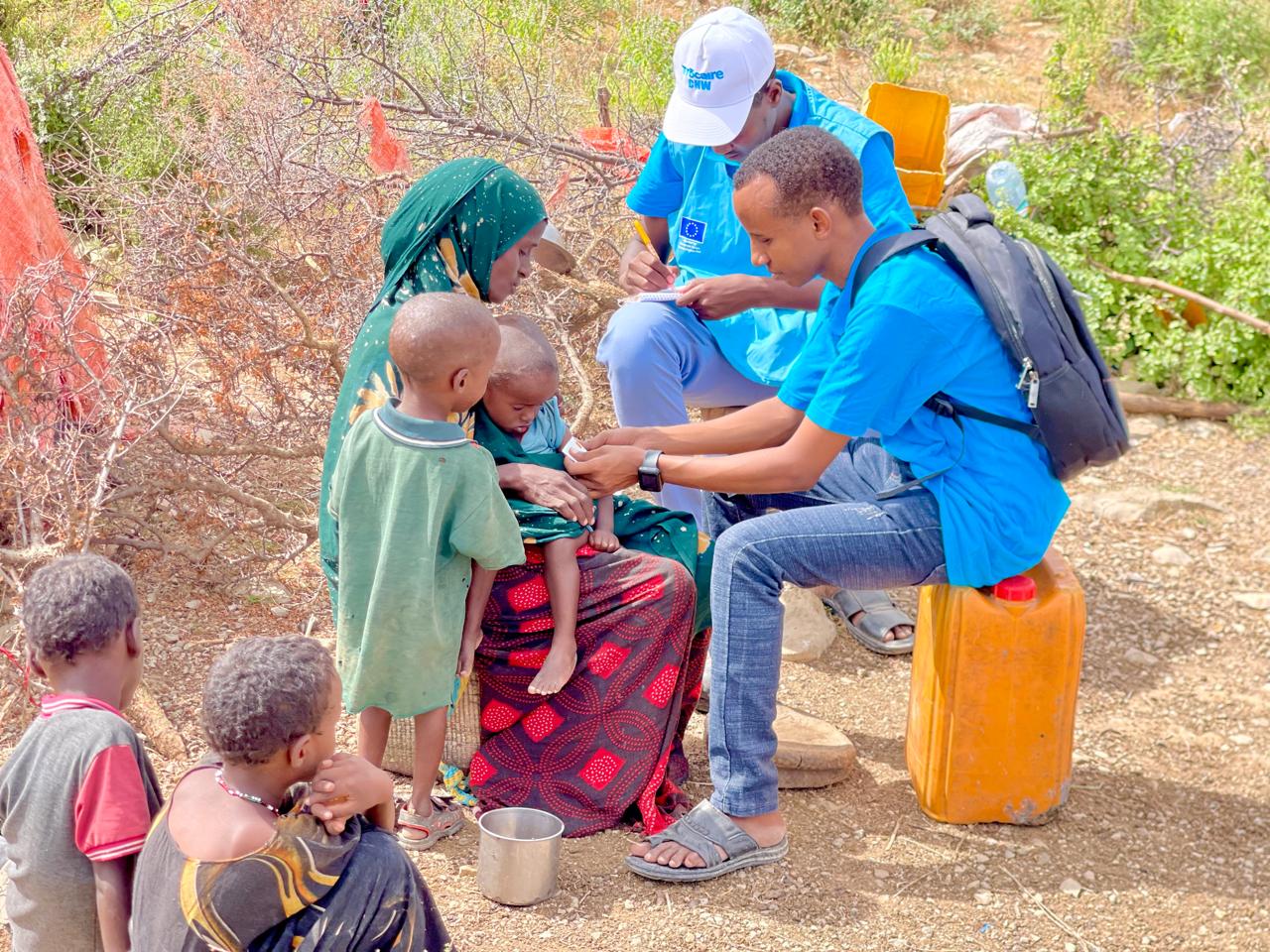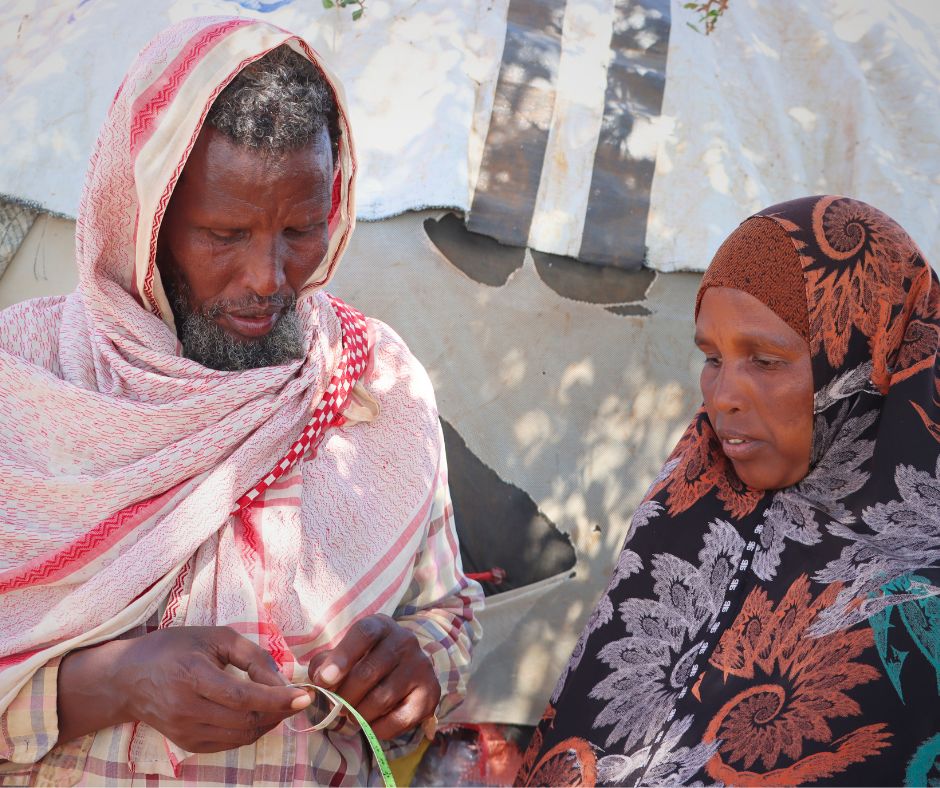As the sun rises over the flood-damaged Luuq, Issack and Abdi emerge from their homes, prepared for another busy day. After a quick breakfast of strong tea and Canjero, a Somali tea and pancake, they check their medical supplies before leaving the health centre, carrying bags. Their determination to make a difference is clear.
The two were trained by Trócaire on integrated community case management (ICCM) – a strategy aimed at delivering essential health services, particularly for children under five years old, in underserved or hard-to-reach communities where access to healthcare facilities is limited.
As they journey through the area, they come to Garas-ameriga, a tiny settlement encircled by improvised dwellings where they meet several mothers, among them Haawo Abdi. At 27 years old and with four children, Haawo is seen holding her young child Haafow, who is burning with fever.
“My son has a breathing problem. He barely eats.” Hawa explained, her voice reflecting both concern and hope.
Issack examined the 18-month-old boy, his trained eyes recognizing the signs of severe pneumonia. “We need to get him to the clinic in Yurkut immediately,” he told Abdi, who was already on his mobile phone, arranging emergency transport.
At the Trócaire-supported clinic in Yurkut, Dr. Amina Farah oversees Haafow’s treatment. She understands that without these community health workers, many children do not make to the health centres. He eyes, focus on patient after patient as women que for healthcare service sitting on a bench.
Hafow received intravenous antibiotics and nutritional supply for a week and then both Haawa and Hafow were dropped back to their village. Young Hafow has improved better – his breathing appears much easier – his chest rises and falls steadily, no longer laboured. The deep, wracking coughs that had racked his small body have subsided to the occasional light clearing of his throat.

The devastating floods that struck Somalia in late 2023 were unprecedented in their intensity. This was followed by the Gu’ rains in 2024 adding to the problem. According to the Somalia Water and Land Information Management (SWALIM), rainfall in the Juba and Shabelle river basins was 300% above average during the October-December Deyr season. This El Niño-fueled deluge affected over 1.2 million people, with 500,000 displaced from their homes.
The European Civil Protection and Humanitarian Aid Operation funded the Caafimaad Plus Consortium to provide comprehensive lifesaving multisectoral interventions to disaster-affected communities in hard-to-reach rural areas and underserved IDP population. This integrated support includes health, nutrition, water, sanitation and hygiene (WASH), and protection services, offering critical assistance to those in need.
Hawa’s family faced significant challenges reaching Luuq during the Deyr season due to severe flooding. The roads were submerged and impassable, with farmlands washed away. Even Akara health center, one of the crucial medical facilities in Luuq, was nearly underwater, severely impacting its ability to provide services.

In the face of floods, conflict, and insurmountable odds, these unsung heroes – Abdi and Issack continue to prove that compassion, dedication, and community-based solutions can indeed change the world – one child, one family, one village at a time.
The community health workers have extended their services to 6,861 (3,688 girls and 3,173 boys) children under the age of five in the villages surrounding Luuq from April 2023 to July 2023. Their day-to-day responsibilities encompass screening children for malnutrition, making necessary referrals, and treating common child diseases including malaria, pneumonia, and cholera.
Equipped with an integrated package of community case management (ICCM+) services, they bring vital healthcare to some of Somalia’s most remote and vulnerable communities. Their work is far from over, but with each life saved, each community empowered, they move Somalia one step closer to a healthier, more resilient future.







